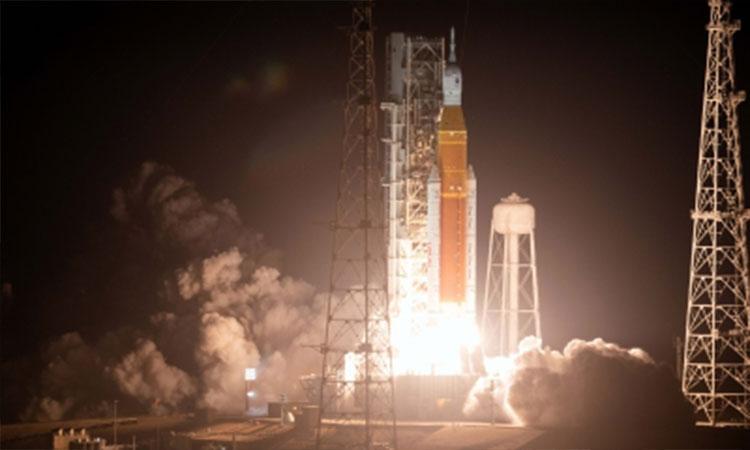The US space agency on Wednesday finally sent its next-generation rocket into space as part of its ambitious, uncrewed Artemis I Moon mission which faced two failed attempts amid years of delays and billions of dollars spent.
The Space Launch System (SLS) rocket took off from Cape Canaveral in Florida and sent the Orion spacecraft on its way to Moon's orbit.
The Orion will continue onward to the Moon, which it will orbit for several days before its likely return to the Earth on December 11.
"For the Artemis generation, this is for you," said Charlie Blackwell-Thompson, Artemis launch director.
Also Read | NASA again gears up for Artemis Moon mission launch attempt
NASA tweeted: "We are going. For the first time, theA @NASA_SLS rocket and @NASA_Orion fly together. #Artemis I begins a new chapter in human lunar exploration".
One of the key goals for NASA is to test Orion's heat shield as it enters Earth's atmosphere.
The rocket was originally intended to debut in 2017, but it got delayed.
This mission was scheduled to launch on November 14 but tropical storm Nicole approaching the Florida coast forced the US space agency to push back the launch attempt.
Artemis I is the first integrated flight test of NASA's Space Launch System (SLS) rocket, an uncrewed Orion spacecraft.
In September, the US space agency called off the Artemis I launch, owing to Tropical Storm Ian threat.
On September 3, NASA attempted to launch Artemis I but called it off after detecting a liquid hydrogen leak.
The next flight of the Artemis programme is set for 2024 that will carry astronauts around the Moon and back without landing.
Also Read | NASA prepares to bid goodbye to Mars InSight lander
In 2025, NASA plans to launch the first crewed Moon landings since the Apollo 17 mission in 1972. That will include the first woman and the first person of colour to walk on the Moon.
Artemis I will provide a foundation for human exploration in deep space and demonstrate NASA's commitment and capability to extend human existence to the Moon and beyond.


















